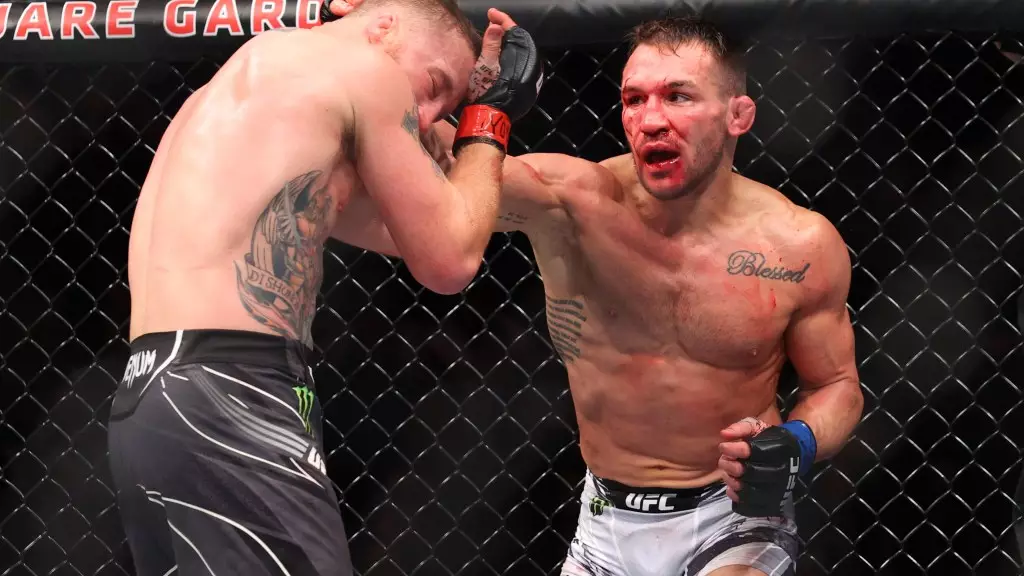Michael Chandler, a prominent figure in the UFC arena, has been patiently waiting for an opportunity to clash with the famed Conor McGregor. However, recent developments suggest that Chandler has grown weary of this anticipation. UFC CEO Dana White confirmed that Chandler has decided to forestall the long-anticipated showdown and pursue another fight instead. “Chandler said, ‘I’m done waiting. I want to fight,’” stated White, marking a pivotal shift in Chandler’s approach. This decision highlights the frustrations athletes often face when high-profile bouts falter, illustrating how the dynamics of the sport can impact a fighter’s plans and mental resilience.
Fans of mixed martial arts have been eagerly awaiting the potential showdown between Chandler and McGregor, a match that many believed would generate not just excitement, but also substantial revenue due to the star power of both fighters. The abrupt end to this anticipated matchup has been met with disappointment across social media platforms. This situation reflects how much anticipation and desire can build among the UFC community, only for those hopes to be dashed in an instant due to injuries or changes in fight schedules. Moreover, with Chandler’s announcement of seeking another opponent so soon, it demonstrates his commitment to remaining active in the sport, rather than being sidelined by circumstances beyond his control.
The decision to pursue another fight signifies Chandler’s understanding of the competitive nature of the UFC. Although he hasn’t competed since his loss to Dustin Poirier in November 2022, his willingness to step back into the octagon without McGregor reflects both maturity and ambition. It also opens the door for discussions about potential matchups that could revitalize his career path. Although McGregor’s future remains uncertain, with White estimating his return in early 2025 due to injury recovery, this paves the way for Chandler to establish himself as a formidable contender within the division.
Dana White’s announcement brings into focus the scheduling intricacies inherent to the UFC. The promotion’s ability to create compelling matchups relies heavily on the health and readiness of its athletes. Chandler’s desire to remain active while waiting for McGregor indicates a strategic mentality, as fighters look to maintain their relevance and positioning among the ranks. This has broader implications for the UFC as a whole, especially with UFC 306 on the horizon where an announcement is expected. Chandler’s next fight will not only influence his own trajectory but could also have ramifications on the larger competitive landscape within the lightweight division.
In summation, the evolution of Chandler’s path speaks volumes about the adaptive nature of MMA fighters. As he prepares to announce his next opponent, potential matchups will undoubtedly generate intrigue as fans speculate on who will step into the octagon with him next. Michael Chandler’s story is a potent reminder that while the road to high-profile bouts can be unpredictable, the fighter’s spirit remains unwavering, embodying the very essence of competitiveness in MMA.

